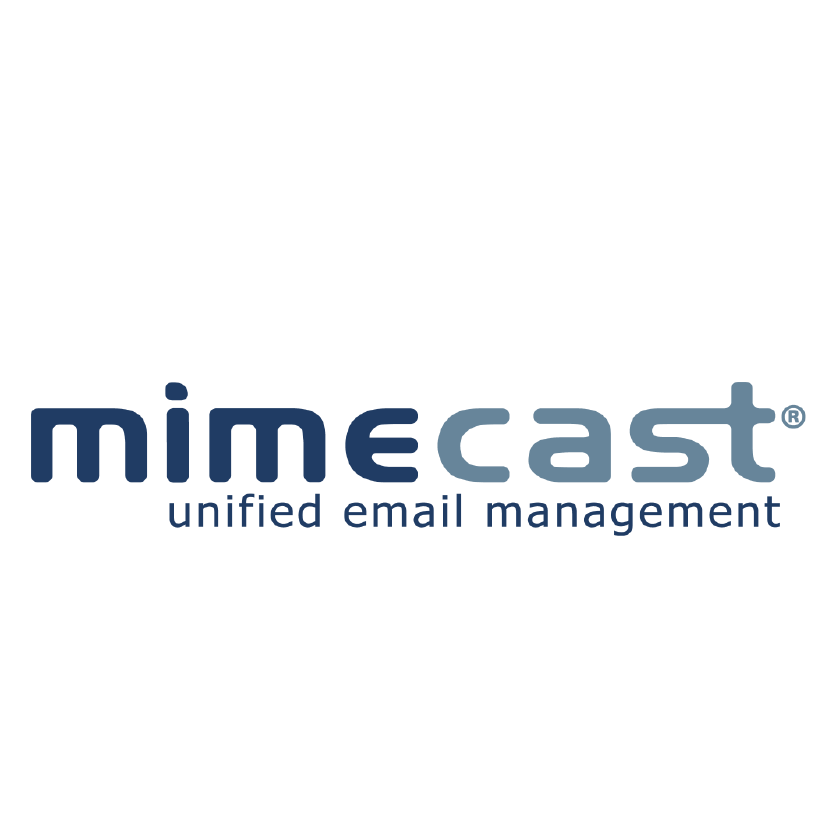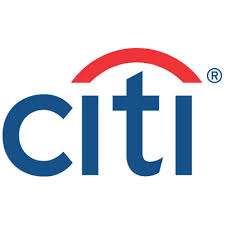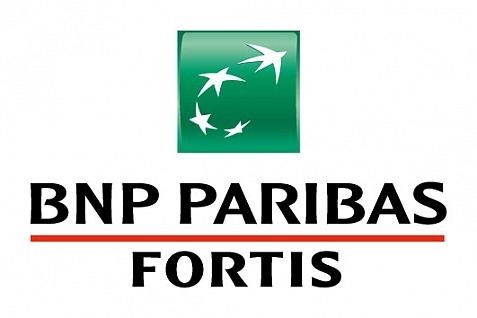Published
- 06:00 am

Linedata (Euronext Paris:LIN), the global solutions provider dedicated to the investment management and credit industries, has partnered with ExactBid, a leading real estate due diligence software company, to seamlessly integrate ExactBid’s RIMS appraisal management services with the Linedata Capitalstream loan and lease origination and risk management platform.
This partnership further streamlines the due diligence process for Linedata Capitalstream users. Lenders, lending assistants, and underwriters can now order services such as appraisals, environmental reports, evaluations and property inspections within Linedata Capitalstream. Information will only have to be keyed in once, improving efficiency and accuracy. Users will receive status updates, and completed RIMS reports will flow directly into Linedata Capitalstream so that all relevant information is available on one platform.
Matt Cotter, CEO, ExactBid, said: “ExactBid is delighted to partner with Linedata Capitalstream. The seamless integration enables our customers to simplify the process of order services within Linedata Capitalstream, so they can work more efficiently and grow their business. We are looking forward to a long and successful relationship with Linedata Capitalstream.”
Raegan Stuart, Executive Vice President, Head of Lending & Leasing, North America, said: “The valuation of commercial properties can be complex and ExactBid has developed a leading position in the appraisal market. The integration of our platforms will enable our customers to better meet their operational and regulatory challenges and illustrates Linedata Capitalstream’s continued drive to work with specialist partners to add value for our clients.”
The Linedata Capitalstream lease and loan origination and risk management platform automates disparate, paper-based, and high-touch operations into a fully-integrated, straight-through processing lease/loan front office solution. Linedata Capitalstream provides the business and risk intelligence and process optimization that credit teams need to manage risk, assure compliance, streamline product delivery, and grow customer relationships.
Related News
- 01:00 am

Chief Product Officer keynote to address how Mastercard is helping to drive financial inclusion by bringing together partners across industries and segments
 From empowering millions of the unbanked to enter the financial mainstream for the first time, to allowing the digitally-savvy to pay and get paid using the device of their choice, join Mastercard at Money20/20 for a perspective on the future of commerce.
From empowering millions of the unbanked to enter the financial mainstream for the first time, to allowing the digitally-savvy to pay and get paid using the device of their choice, join Mastercard at Money20/20 for a perspective on the future of commerce.
Driving the next generation of commerce solutions starts with bringing together the right minds. At this year’s show, Mastercard will engage developers and grow relationships with tech and fintech startups to do just that.
- On Saturday, October 21, Mastercard will make the Mastercard Blockchain API exclusively available for developers participating in the Money20/20 Hackathon. As a sponsor of the hack, Mastercard will challenge participants to develop solutions in exchange for a coveted set of prizes.
- On Monday, October 23 – Wednesday, October 25, Mastercard Start Path and Give Me 5 will sponsor Startup City and invite five of the female-founded companies Mastercard works with to display their technologies in the exhibition. The companies include AirWallex, Everledger, Endor, Novacredit and Goodworld. [Sands Expo; Startup City]
Throughout the Money20/20 conference, Mastercard executives will participate in a number of conversations on the future of financial technology:
- On Sunday, October 22, Michael Miebach will deliver a keynote on leveraging technology for financial inclusion and social good. [The Venetian Ballroom, Level 2; 6:30 p.m. PT]
- On Monday, October 23, Michael Miebach and David Yates will highlight how Mastercard and Vocalink are shifting the payments paradigm together during a fireside chat. [Bellini, The Venetian Level 2; 10:00 a.m. PT]
- On Monday, October 23, James Anderson will share ways to streamline online checkout during a panel discussion. [Titian, The Venetian Level 2; 2:30 p.m. PT]
- On Tuesday, October 24, Colleen Taylor will review the digitization of B2B payments during a panel discussion. [Bellini, The Venetian Level 2; 4:10 p.m. PT]
- On Tuesday, October 24, Kiki Del Valle will discuss the Internet of Everything during a panel discussion. [The Forum, Level 2; 4:10 p.m. PT]
- On Wednesday, October 25, Jess Turner will highlight the opportunities in faster payments during a workshopon real-time payments. [San Polo; The Venetian Level 3; 8:30 a.m. PT]
Join Mastercard at Money20/20, October 22–25 at the Venetian Hotel and Sands Expo in Las Vegas to learn how the company is truly redefining what’s possible in payments. [Booth #1705]
You can also visit the Mastercard Engagement Bureau and follow @MastercardNews on Twitter for live updates from the show. If you are a member of the media planning to attend, please contact the team to set up a meeting.
Related News
- 03:00 am

OpenInvest, an online investment advisor empowering individuals to drive social change with their dollars, today launched its first iPhone app.
Investors have the legal right to weigh in on important company decisions, or “vote their proxies.” Yet proxy voting participation is historically low for individual investors. During last year's proxy season, just 28 percent of outstanding shares held by retail investors resulted in votes, according to a report by Broadridge Financial Solutions. The process is currently extremely complex, with shareholders either blocked from using their power by fund managers, or overwhelmed by paper packets and obscure ballot measures.
“Shareholders directly and indirectly own nearly 80 percent of U.S. equities, which means CEOs work for us,” said Joshua Levin, co-founder and chief strategy officer, OpenInvest. “Until now, however, it has been virtually impossible to use this power. By unleashing the world’s first digital democracy, we’re putting the economy’s most important decisions - whether to pollute or sustain the planet, whether to discriminate or diversify - at the fingertips of its rightful owners: you and me.”
Using OpenInvest’s app, individual investors can ditch the paper packets mailed to them and easily set up a low-cost market-performance investment portfolio tailored to their personal values. They then receive push notifications about corporate actions, divest-invest campaigns, and succinct descriptions of the proxy votes that matter to them most. They can swipe for or against an initiative as easily as selecting a Tinder date, and then share with others. As users take actions, their portfolios auto-rebalance so they don’t have to sacrifice returns. Furthermore, on their dashboards, users can view their real-time environmental and social impacts.
Proxy ballot measures typically include: electing directors to the board, approving a merger or acquisition and approving a stock compensation plan. However, some of the most important votes include social and environmental issues, such as assessing climate change risk or issuing an anti-discrimination policy. For example, on October 10, Procter & Gamble (P&G) will have an important proxy vote to request a report on how the company will defend LGBTQ employees and their families against discrimination and harassment in states with new “Religious Freedom” laws.
Related News
- 04:00 am

An OECD* report has concluded the UK’s insolvency and restructuring framework is the most effective in the organisation at preventing a build-up of productivity-sapping zombie companies, says UK insolvency and restructuring trade body R3.
The report, ‘Insolvency regimes, zombie firms and capital reallocation’, says that zombie companies – struggling companies aged 10 years or older who cannot cover debt interest payments with their profits for three consecutive years – redirect investment away from innovative rivals, push up wages, and undermine productivity, and that an economy’s insolvency framework is a key factor in reducing zombie firm numbers and investment.
The report uses 13 key criteria to rank insolvency frameworks in 34 OECD economies according to their effectiveness at closing down zombie companies (and helping their capital and resources be re-used more effectively elsewhere), restructuring zombie companies back to financial health, or preventing zombie companies from developing in the first place.
Using these criteria, the UK’s insolvency and restructuring framework is by far the most effective at dealing with zombie companies, followed by the frameworks in Japan and Germany. Estonia’s framework is rated the least effective.
The OECD report notes that in the UK “personal costs associated with entrepreneurial failure and barriers to restructuring are low, while there is also a number of provisions to aid prevention and streamlining.”
Duncan Swift, deputy vice-president of R3 says: “Zombie companies are a big part of the productivity puzzle plaguing Western economies, so it’s encouraging the UK’s insolvency and restructuring framework is recognised as the best positioned to tackle problems caused by these unproductive companies.
“The insolvency and restructuring framework is a fundamental pillar of any economy. It makes sure resources – whether investment, people, or ideas – are being used productively and aren’t stuck in stagnating companies. The profession’s work keeps an economy competitive, helps new businesses thrive, and helps older companies adapt.”
Duncan Swift adds: “The OECD report highlights plenty of opportunities for other countries to reform and catch-up to the UK, so we need to keep adapting to remain ahead of the competition. Changes are already taking place within the profession: it would be very misleading now to think of the profession as only involved in business failure and closing down companies. Over the last decade or so, much of the profession’s work has been business rescue-focused while pre-insolvency restructuring work has become as important as statutory insolvency procedures.
“However, with other countries’ frameworks closing the gap and with Brexit presenting serious challenges to running cross-border insolvency and restructuring work from the UK, the government must act to help the UK remain an international insolvency and restructuring hub.
“Much-needed insolvency reforms first proposed by government in early 2016 have since stalled with no clear timetable for their introduction. The sooner the government acts to introduce its reforms, the better.”
Why the UK framework excels
The OECD’s report says that insolvency framework elements likely to increase zombie firm numbers include, among others:
- high personal costs to failed entrepreneurs;
- a lack of preventative or procedural streamlining measures;
- indefinite stays on assets or the automatic dismissal of an insolvent firm’s management;
- no option for creditors to trigger insolvency procedures;
- absence of a ‘cramdown’ option that would tie dissenting minority creditors to a restructuring plan;
- and a high degree of court involvement.
In the UK, a bankruptcy term for an insolvent entrepreneur will last a minimum of just one year, there are options for management to remain in control of an insolvent firm (in a Company Voluntary Arrangement, for example), procedures are time-limited, creditors can trigger procedures, and procedures operate mostly out-of-court.
In contrast to the UK’s framework, the report says that in the US, where the framework is heavily court-based, “personal costs to failed entrepreneurs and barriers to restructuring are relatively low, but preventative and streamlining measures are generally lacking.”
The report scores insolvency frameworks out of 1, where a score of 1 indicates a less effective framework and a score of 0 indicates a more effective framework. Overall, the UK scores approximately 0.1, relatively well-ahead of its closest rival Japan on approximately 0.25.
How many zombies are there?
The report also estimates that 7.5% of UK capital is “sunk in zombie firms” (the 5th lowest of 15 countries for which data are available, behind Slovenia, France, Japan, and Finland).
R3’s own most recent survey of UK businesses (conducted with BDRC Continental in April 2017) found that 5% of UK companies were only paying the interest on their debts and not repaying the debt itself – another measure of a company’s ‘zombie’ status.
Duncan Swift comments: “While an insolvency framework exerts downward pressure on zombie firm investment and numbers, there are plenty of factors in the UK pushing in the opposite direction. Record low interest rates and, since the financial crisis, unprecedented levels of forbearance from traditional sources of credit, like banks, have helped otherwise uncompetitive companies survive.”
Planned government reforms stalled
In May 2016, the government proposed a series of reforms, many of which are backed by the insolvency and restructuring profession, to increase business rescue in the UK.
However, following the June 2016 EU referendum and the surprise loss of the government’s majority in June 2017, limited progress has been made on the reforms with the government’s last public comments being made in September 2016.
Proposals included the introduction of a business rescue ‘moratorium’ which would protect insolvent businesses from their creditors for a short period of time while they put in place a rescue or wind-down plan; a new court-based restructuring tool which would introduce a ‘cramdown’ option to the UK; and new rules which would prevent ‘essential suppliers’ from scuppering business rescues by withdrawing their supplies.
Related News
- 09:00 am

Baker Hill, a leading provider of technology solutions for common loan origination, relationship management and smart data analytics, has entered into a strategic partnership with Allied Solutions to extend access of Baker Hill NextGen™ to the company’s more than 4,000 clients.
Through this agreement, Allied Solutions, a provider of insurance, lending and risk management solutions, will refer Baker Hill’s suite of loan origination, risk management and business intelligence products to its financial institution clients. The relationship will also provide Allied Solutions’ clients with access to Baker Hill NextGen™, a cloud-based, end-to-end loan origination system that utilizes both relationship and risk management, as well as business intelligence. The platform offers a more streamlined, fluid workflow with access to one source of data, empowering financial institutions to strengthen relationships with account holders, boost productivity and ultimately drive growth and profitability.
“Allied Solutions is committed to offering the most innovative products and services available in the marketplace to its customers, which is one of the key reasons Baker Hill chose to partner with the company,” said John M. Deignan, President and CEO of Baker Hill. “We are thrilled to work with Allied Solutions. We feel confident that their clients will appreciate Baker Hill’s focus on continuous innovation and unwavering efforts to help financial institutions meet the evolving demands of today’s consumers.”
Allied Solutions utilizes technology-based solutions that are customized to fit their clients’ needs. By addressing industry needs through partnerships, the company is able to offer the most advanced products and services, helping clients grow their businesses while managing risk.
“A strategic partnership with Baker Hill makes sense for us”, said Dave Underdale, CMO at Allied Solutions. “We are always looking for new and innovative solutions that we believe will add value to our clients. Baker Hill’s platform is designed to accommodate the growing needs of financial institutions, and their consumers, by providing critical business insight and a streamlined service, something that can only empower financial institutions as they continue to grow and evolve their business.”
Related News
- 05:00 am

Mimecast Limited, a leading email and data security company, today announced the launch of Mimecast Cloud Archive, the leading multipurpose archive solution built for the cloud. Mimecast Cloud Archive delivers an all-in-one cloud service that integrates: a secure data repository, built-in data recovery, storage management, e-discovery and compliance capabilities. Mimecast Cloud Archive enables customers to access their email archive anywhere, anytime, and on any device in record speed. Latest innovations will be featured at the Mimecast Cloud Archive global virtual event on October 11, 2017. Mimecast also revealed new data, revealing organizations' top challenges with archiving solutions.
Eighty-eight Percent of Organizations Struggle with Existing Archive Solutions: Get New-School About Archiving
Legacy on-premises and first generation cloud email archiving platforms have become obsolete, as the way organizations use email has completely changed since archiving's inception nearly two decades ago. According to new global data from Mimecast and Vanson Bourne, 88 percent of organizations responded that they have experienced problems with their existing archiving solution. Nearly 60 percent cite administrative complexity as a top challenge, while 48 percent experience a lack of scalability. Another 56 percent are plagued by slow search performance. Mimecast Cloud Archive is designed and optimized for the cloud, offering the scale, performance and advanced features needed to manage email today.
"Most email archiving technology was built when email usage was much different. With email being the top communications channel for business, it's growing at a rate where these on-premises solutions can't keep up," said Peter Bauer, chief executive officer, Mimecast. "Archive needs to be thought of as a digital memory- with multiple dimensions that secure corporate data, empower employees with anywhere, anytime access to email, and ensure regulatory and compliance obligations are met. With Cloud Archive, we're able to give customers the confidence and control they need, with the industry's fastest search speeds, to get more value from their email data today."
Mimecast Cloud Archive latest innovations enable:
- E-Discovery and compliance are made easy by leveraging the fastest search performance in the industry. Robust, intuitive tools simplify administrative and e-discovery searches for IT administrators, compliance teams, and legal professionals.
- Data recovery with Sync & Recover offers independent, immutable, always-available archives to hedge against data loss or corruption, giving organizations a means to restore their Outlook content - including email, personal folders, calendar entries and contacts - should misfortune strike.
- Business insights found in Case Review App allow for fast, effective search of email and attachment data to serve myriad missions, including compliance reviews, litigation case assessments, and internal policy audits. Additionally, Mimecast's latest integration with Salesforce.com allows for Cloud Archive access and fast search capabilities within the CRM tool.
- Long-term data preservation with the archiving of email and attachment data into perpetuity, with no additional fees or charges for storage or retention duration.
"Archiving is intended to perform two vital functions: preserve data and simplify data management functions like search and e-discovery. However, many archiving platforms use on-premises architecture that isn't able to cost-effectively handle the growing volume of email communications that is the 'norm' for businesses today," said Andrew Smith, senior research analyst at IDC. "Buyers - and the market as a whole - are quickly moving to cloud-based archiving solutions that allow for better scale, performance and value."
The Need for Anywhere, Anytime Archive Access
Mimecast's new research also found that fifty percent of organizations noted mobility, faster search speed and end-user accessibility as top priorities. Organizations that give employees access to their own email archives enable them to work anytime, anywhere and increase productivity and streamline collaboration. This access also reduces the burden on IT. Ninety-four percent of organizations reported that if their email archiving solution included mobile apps for employees to access personal archives, they would roll them out, with one-fifth saying they would roll them out "without a doubt."
Mimecast Cloud Archive includes new capabilities that empower employees with fully integrated email management from anywhere, and enhances security by ensuring full IT control over deployment, content access and revocation using their chosen Enterprise Mobility Management solution. Employees can self-serve for rapid archive search, security controls and always-on email whether using a corporate device or their own, increasing productivity.
Mimecast has partnered with BlackBerry, a leader in Enterprise Mobility Management, to ensure Mimecast Mobile can be deployed securely and with the management, access and content controls required. Support for other leading mobility management platforms will follow.
"We live in an always-connected world, and employees have grown to expect access to their corporate email archives anytime, from anywhere," said Mark Wilson, SVP and Chief Evangelist, BlackBerry. "While this helps drive productivity and collaboration, organizations need to ensure that corporate data is secured in line with policy no matter the device used or if the employee is on or off the corporate network. We're excited to help Mimecast give IT and security teams the ultimate control over employee access and authentication, while enabling employees to stay productive."
Want to learn more? Join the Mimecast Cloud Archive live virtual event taking place in three sessions around the globe on Wednesday, Oct. 11th. Attendees will get to hear from Amanda Crew, actress from the hit HBO series Silicon Valley who will present key challenges in archiving plus insights and perspectives from Mimecast CEO Peter Bauer and Mimecast CTO Neil Murray. Attendees also get access to deep-dive demonstrations of the latest product innovations and live technical chat sessions with experts.
Related News
- 05:00 am

Visible Alpha today announced two new enhancements to its ONEaccess platform to aid clients in preparing for the compliance obligations associated with MiFID II regulations.
The addition of these two offerings to the ONEaccess suite of products expands the company’s holistic MiFID II Solution for both research valuation and inducement management.
“As the MiFID II requirements around budgeting and inducements have become clear over the past six months, we’ve partnered with our clients and vendors like SPi Global to build the functionality that makes compliance as streamlined as possible,” said Mike Stepanovich, President of Enterprise Services at Visible Alpha. “Now, more than 60 firms with a combined $12 trillion in AUM are deploying our tools to meet research unbundling requirements and implement best practices around research valuation.”
The two new enhancements to the ONEaccess platform include:
ONEaccess Email Tracking & Classification: New technology developed with technology provider SPi Global mitigates the risk from inducements that come from accessing research content through one’s email inbox. The application classifies all email data, content, links and PDF attachments received into research categories and flags any potential inducements. The ONEaccess Email Tracking & Classification application is part of the company’s broader Reverse Entitlements functionality for managing all types of research inducements.
ONEaccess Budgeting: Advanced budgeting functionality from within the ONEaccess Resource Tracking solution allows firm administrators to set firm-wide budgets and allocate funds to specific groups, individuals, time periods, and fixed and variable costs. Investment professionals can then allocate their budget to specific research providers in order to comply with MiFID II budgeting requirements. All information captured within the ONEaccess Budgeting application can then populate the valuation framework established within the ONEaccess Broker Vote application.
“This partnership has resulted in an end-to-end solution that classifies research email towards mitigating inducement risks, to meet MiFID II regulatory requirements. Our goal as a content technology provider is to partner with companies like Visible Alpha to create industry specific solutions,” said Jishnu Gupta, Senior Vice President for Technology at SPi Global.
Related News
- 01:00 am

A group of 60 university students from Hong Kong visited Citi Ventures in San Francisco in September, as part of their week-long FinTech-focused entrepreneurship boot camp at Stanford Graduate School of Business in Silicon Valley under the Cyberport University Partnership Programme (CUPP).
Ms. Angel Ng, Consumer Business Manager of Citibank Hong Kong said, "At Citi, we play a pivotal role in fostering the development of FinTech in Hong Kong, to build a digital ecosystem. We will continue to actively collaborate with different key stakeholders and close partners like Cyberport, to cultivate the next generation of FinTech talents in Hong Kong.
"We believe the participants from this program have already gained global insights and a unique understanding on how Citi's innovation works and our corporate culture, broadening their horizon to get a closer look of what the world's leading digital bank can offer."
The students visited Citi Ventures on September 22 and were received by Valla Vakili, Head of Ventures Studio and Suman Natarajan, Vice President of Venture Investing. They explained how Citi Ventures partners with Citi's businesses to explore new solutions and capabilities for the bank and its customers. They also addressed the U.S. FinTech landscape and how the Venture Investing team partners with entrepreneurs to make strategic investments in start-ups that are developing solutions across Data Analytics & Machine Learning, Commerce & Payments, Financial Technology, Marketing & Customer Experience and Security & Enterprise IT.
"We were pleased to welcome the students from the Cyberport University Partnership Programme to Citi Ventures," said Valla Vakili, Head of Ventures Studio. "Engaging with diverse and emerging talent is an important part of our innovation model because it enables us to bring different perspectives to the table to uncover new solutions for our customers."
Another group of students from the Chinese University of Hong Kong will visit the award-winning Citi Innovation Lab in Singapore, which focuses on exploring new ideas and service concepts for transaction banking for institutions. Citi has a global network of labs in the U.S., Mexico, Ireland, Israel, and Singapore that drive innovation throughout the bank's businesses.
Related News
- 03:00 am

BNP Paribas Securities Services is implementing Smart Chaser, a trade matching tool using artificial intelligence and predictive analysis, to further automate the trade processing services it provides to investment managers.
Thomas Durif, Global Head of Middle Office Products at BNP Paribas Securities Services, said: “We estimate that up to 30% of the trades processed on behalf of asset managers require manual intervention in order to complete. This is an industry-wide challenge which is often caused by counterparties holding mismatching data for the same trade.
“Using predictive analysis, Smart Chaser will analyse historical data to identify patterns in trades that have required manual intervention in the past and proactively warn clients and their brokers on their live trading activity so they can take action promptly. We are already making good progress, having reached around 98% prediction accuracy.
Maxime Boyer-Chammard, Global Head of Investment Services and Analytics, at BNP Paribas Securities Services, said: “We are delighted to be working on this new tool. Smart Chaser is a great example of how we aim to transform our middle office technology and make straight through processing a reality thanks to big data and predictive analytics, to the ultimate benefit of our clients.”
Trade matching – the comparison of trade details between the client and its broker – is a key part of the middle office service provided by BNP Paribas to its investment manager clients. Matching must be performed in a timely manner or there is a risk a trade may require manual intervention or, in some cases, fail. Intervention or failure is particularly likely if a trade is not settled on the day of execution.
Using machine learning and predictive analysis, Smart Chaser will predict the likelihood that a trade will not “match” automatically and will therefore require manual intervention. With Smart Chaser, BNP Paribas aims to be able to predict the likelihood of a delayed “trade matching”, ascertain the contributors to the delay and suggest a pre-designed email template to be sent by the middle office operational team to relevant clients.
Related News
- 09:00 am

FICO was named a Javelin 2017 Identity Proofing Platform Leader in the Tailored category.
- Identity proofing solutions match a digital identity to a real-life individual and assess the risk associated with a particular event.
- FICO’s award was based on FICO® Application Fraud Manager.
Silicon Valley analytic software firm FICO announced that it was named a Leader in the Javelin 2017 Identity Proofing Platform Awards, in the Tailored category. Identity proofing solutions match a digital identity to a real-life individual and assess the risk associated with a particular event. FICO’s award was based on FICO® Application Fraud Manager. FICO was also named a Contender in the Functional category.
View a complete list of 2017 Identity Proofing Platform Award winners: https://www.javelinstrategy.com/sites/default/files/17-4003J-F-2017%20Javelin%20Identity%20Proofing%20Platform%20Award%20Whitepaper.pdf
“One of the foundational fraud challenges that an institution faces — identity proofing — must be tailored to the risks inherent in the channel, market, product type, scenario, and threat environment,” the Javelin report says. “Identity proofing covers circumstances ranging from new account applications to new device enrolment, and in order to successfully discern between fraudsters and legitimate customers, financial institutions must be able to bring a wide range of capabilities to bear as part of their identity proofing workflows.”
“Application fraud is a fast-growing problem that has accelerated due to online onboarding in banking, retail, telecommunications and other industries,” said TJ Horan, vice president of FICO’s fraud solutions. “At the heart of any defence are the analytics that can validate an applicant’s identity in real time. That’s FICO’s specialty, and we’re proud to be named one of the awardees in Javelin’s first study of this market.”
FICO® Application Fraud Manager is a highly flexible, component-based system of industry-leading technology capabilities, including data acquisition, analytic models, decisioning, case management and link analysis. The solution can help businesses in any industry to stop first- and third-party fraud where it starts: at the point of application. The solution leverages FICO’s 25 years of artificial intelligence and machine learning innovation to help defend against sophisticated, organised fraud attacks.
The “Tailored” category in the Javelin awards recognises those firms with products that offer the greatest flexibility in integrating with client systems and adapting to client business needs.









